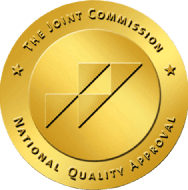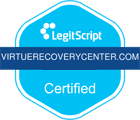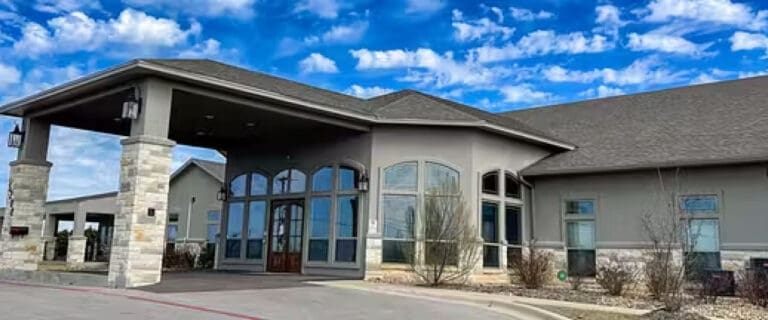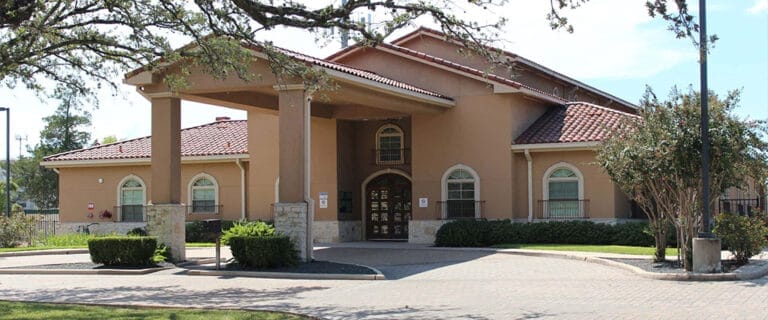[trustindex data-widget-id=e88f08d27efe2878bb760eb4a03]
Arizona Rehab for Drug & Alcohol Addiction and Mental Health Treatment
Drug and Alcohol Rehab Centers in Arizona
Virtue Recovery Center is a substance abuse and mental health treatment center with two facilities located in the Phoenix Metropolitan area, also know as the Valley of the Sun. Recovery programs are designed to provide comprehensive treatment for individuals struggling with addiction to drugs or alcohol and the range of treatment options, including detoxification, residential treatment, and outpatient services.
Does your health insurance cover drug and alcohol treatment? Check your insurance.
Why Choose Virtue Recovery Center in Arizona
Virtue Recovery Center has been dedicated to rescuing lives and rebuilding families affected by substance. Our team of experienced addiction treatment professionals has crafted some of the most reliable and comprehensive programs in the field, addressing drug addiction, alcoholism, dual diagnosis, trauma treatment, and eating disorder treatment.
Our offerings include inpatient detox, residential treatment programs, and Intensive Outpatient Rehab Programs (IOP), all of which incorporate services for co-existing addiction and mental health issues.
Additionally, we provide sober living options, aftercare, recovery management, and resources to ensure you receive the appropriate level of care tailored to your specific needs.
Wide variety of treatment options: Arizona is home to numerous rehab centers offering diverse treatment programs and approaches catering to different needs and preferences.
High-quality care: Many rehab centers in Arizona are known for their excellent and experienced staff.
Affordability: Arizona offers a variety of rehab centers with different pricing structures, making it more likely that you’ll find a facility that fits your budget.
Supportive recovery community: Arizona has a strong recovery community, which can provide invaluable support during and after your treatment.
Beautiful surroundings: Arizona’s natural beauty and diverse landscapes can contribute to the healing process.
- Native American Treatment: We provide culturally sensitive and comprehensive addiction and mental health treatment tailored specifically to meet the unique needs of Native American communities. We also accept AIHP insurance.
Our ultimate goal is to guide you through healing and help you regain an addiction-free life.
Virtue Recovery Center
Chandler, Arizona
Virtue Recovery Center
Sun City West, Arizona
Our Top-Rated Drug & Alcohol Detox & Treatment Center
Our drug and alcohol addiction treatment program is custom-tailored to meet each patient’s unique needs and circumstances. Virtue Recovery Center treats clients with an evidence-based, trauma-
Our luxury recovery program in Arizona, offers a full continuum of care, including medical detox and residential treatment.
Whether you’re struggling with alcohol, heroin, meth, cocaine, marijuana, opioids, fentanyl, or prescription drugs, Virtue Recovery Center provides you with all the tools necessary for long-term success in recovery.
To make your treatment stay as comfortable as possible, you can expect the following:
- Executive chef-prepared meals
- State-of-the-art facilities
- Low staff-to-patient ratio
- On-site Gym
- Private and Semi-Private Rooms
Virtue Recovery Center is a luxury program that treats the mind, body, and spirit for a complete & lasting recovery. Our experienced and compassionate staff members look forward to welcoming you into a safe and supportive environment ideally suited to long-term recovery. Contact us today to begin your path to recovery. You can heal, and our addiction treatment centers can help!
What our Clients Say About Virtue Recovery Center
[trustindex data-widget-id=35e3c5f27c6824203306d1ac7ef]
FREE ASSESSMENT
Get immediate treatment help now. Contact us to schedule a free assessment with a an experienced treatment professional. 100% safe & confidential.
Drug and Alcohol Addiction Recovery Centers in Arizona
We work with Most Insurance Providers
Our Arizona rehab centers, like our other facilities, accepts major PPO insurances and VA benefits, potentially covering up to 100% of treatment costs. For those without enough insurance, we offer flexible payment plans. Contact our admissions team to explore how our luxurious Arizona center can assist in your recovery journey. Unsure about an addiction issue? Reach out for an assessment at any Virtue Recovery location.
Take a Virtual Tour of our Chandler, Arizona Facility
Soar above our Chandler, Arizona, facility with our drone video, offering a panoramic view of Virtue Recovery Center. Discover our meticulously designed communal areas, cutting-edge treatment spaces, and welcoming residential quarters, all tailored for your rehabilitation journey. Enjoy a bird’s-eye view of our peaceful outdoor settings and get a sneak peek of our holistic wellness programs. This aerial tour provides a unique perspective on the supportive and healing environment that awaits you in Chandler, serving as an inviting introduction to your recovery journey.
Addiction Recovery Programs at Virtue Recovery Center
Explore Virtue Recovery Center’s Drug and Alcohol Addiction Recovery Programs, available in Arizona, Texas, Nevada, and Oregon. Our tailored, comprehensive approach addresses every aspect of addiction, offering personalized treatments, evidence-based therapies, and holistic care. We’re committed to providing the tools and support needed for lasting sobriety and well-being, guiding each individual toward a healthier, fulfilling future.
Program Highlights:
Our programs define our exceptional approach at Virtue Recovery Center. From personalized treatment plans tailored to meet individual needs to applying advanced evidence-based therapies, we focus on holistic, integrative care.
Our dedicated team offers compassionate support, fostering a healing environment that encourages recovery and growth.
We emphasize community building and ongoing support, ensuring our clients have a solid foundation for long-term success and a sustained journey toward sobriety and well-being.
Addressing physical, emotional, and psychological aspects of addiction.
Tailored plans to meet individual needs.
Including counseling and support groups.
Integrated into individualized care for a well-rounded recovery.
Understanding that each person’s path to recovery is distinct.
Equipping clients with tools for long-term sobriety and success.
Aftercare services to assist in maintaining sobriety and facing life’s challenges.
Our Approach:
At Virtue Recovery Center, we believe in a holistic and individualized approach to recovery.
Our method goes beyond treating symptoms, aiming to uncover and address the root causes of drug and alcohol addiction.
By integrating various evidence-based therapies and holistic treatments, we ensure a comprehensive recovery experience.
Our approach is adaptive, evolving with each client’s journey to meet their changing needs and support their growth every step of the way.
Our Accreditations Recognized Excellence in Care and Service

The Joint Commission
All Virtue Recovery center treatment facilities have been accredited by The Joint Commission, an independent, nonprofit organization that requires accredited treatment providers to deliver quality services and results, demonstrate value and meet or exceed industry performance standards in all areas. All of our addiction treatment facilities are also licensed in the states where they are located.

LegitScript Certification
Virtue Recovery Center Family of Companies is LegitScript certified. LegitScript monitors and certifies addiction treatment facilities to ensure addiction treatment providers are operating transparently and in compliance with applicable laws and regulations.

National Association of Addiction Treatment Providers
The Virtue Recovery Center Family of Companies is a member of the National Association of Addiction Treatment Providers (NAATP). This organization provides leadership, advocacy, training, and member support services to ensure the availability and highest quality of addiction treatment.

Better Business Bureau
BBB Accreditation signifies our commitment to integrity, ethical business practices, and customer service excellence. As a BBB Accredited Business, we are part of a select group of companies that have committed to high standards and best practices in all areas of operation.

HIPPA Compliant
All Virtue Recovery Center facilities are HIPAA (Health Insurance Portability and Accountability Act of 1996) and 42CFR compliant. HIPAA provides data privacy and security provisions for safeguarding medical information. 42CFR adds an extra layer of protection for medical records related to treatment for substance use disorder. You can be assured that your personal health information is secure with us.
Find Hope at Virtue Recovery Center
The staff at Virtue Recovery Center looks forward to helping you and your loved ones on the road to recovery. Get in touch with us today to learn more about our facilities located throughout the United States.
Comprehensive Support and Personalized Care
Virtue Recovery Center is dedicated to offering essential support for those facing substance abuse in our community. We provide complimentary assessments and a pathway to rehab admissions, tailored to each individual’s unique circumstances. Our expert team assesses the severity of addiction and any concurrent health issues to develop a personalized treatment plan, possibly including our advanced inpatient rehab. Due to high demand, we recommend contacting us early to embark on your recovery journey.
Our Locations
Virtue Recovery Center operates a network of facilities across the country, offering comprehensive addiction and mental health care for you or your loved one in a supportive and healing environment.



Virtue Recovery Center Sun City West
13951 W Meeker Blvd, Sun City West, AZ 85375




Substance Abuse, Eating Disorder and Dual Diagnosis Treatment
Our addiction treatment facilities in Arizona offer personalized care for patients facing a variety of addictions, including prescription drugs, eating disorders, and dual diagnosis.
Our experienced team is devoted to guiding patients on their path to recovery through individualized treatment planning and one-on-one care.
Our nationally accredited, evidence-based treatment services aim to improve the lives of our patients and support them in their journey towards recovery.
We firmly believe that recovery is attainable for everyone who seeks it, and we are committed to providing the best possible support to our patients throughout their recovery process.
About Us: Our Top-Rated Addiction Treatment & Detox Centers in Arizona
We aim to provide only those drug and alcohol addiction treatments that are modern, proven and effective. We routinely review and update our services to meet the needs of our clients and to align with emerging innovations in practice. We recognize that every client will have unique needs and challenges.
We are committed to not giving up on any client, for any reason. We are aware of the discomfort and pain that accompanies this healing. We are committed to helping clients, along with staff, in leaning into the discomfort, so that change can be a reality. We recognize the importance of taking personal responsibility for one’s healing, but also the necessity of support in the process.
We guide clients in finding the balance that is right for their path. We know that it can be difficult to push forward in the face of pain or doubt. Our commitment is to lift up those that are struggling with walking this path on their own. We support clients in recognizing their limitless capacity for growth and healing. We know that the recovery process is difficult and not always on our timeline. We believe it is essential to celebrate and honor every step forward, no matter how small or large. We believe that the only true path for healing, and for the healers, is one that is rooted in honesty and truth. We commit ourselves to making each decision in light of these values, with client wellness and clinical excellence serving to guide our thinking at all times.
emotional, social, and behavioral challenges for individuals, families, and communities. Virtue Recovery exemplifies quality care through individualized rehabilitation treatment for long-term recovery outcomes.
not have to suffer any further, as they can access exceptional Care and embark on the journey of recovery.
Our Values
- Dynamic Care: We aim to provide only those treatments that are modern, proven, and effective. We
routinely review and update our services to meet our client's needs and align with emerging
innovations in practice. - Unwavering Devotion: We recognize that every client will have unique needs and challenges. We are
committed to not giving up on any client for any reason. - Leaning In: We are aware of the discomfort and pain accompanying this healing. We are committed to
helping clients, along with staff, in leaning into the discomfort so that that change can be a reality. - Both ME and WE: We recognize the importance of taking personal responsibility for one's healing and the necessity of support in the process. We guide clients in finding the balance that is right for their path.
- Reach for the Sky: We know it can be challenging to push forward in the face of pain or doubt. Our
commitment is to lift those struggling with walking this path on their own. We support clients in
recognizing their limitless capacity for growth and healing. - Affirming Growth: We know that the recovery process is difficult and not always on our timeline. We believe
it is essential to celebrate and honor every step forward, no matter how small or large. - Integrity in Every Moment: We believe that the only true path to healing is rooted in honesty and truth. We commit ourselves to making each decision in light of these values, with
client wellness and clinical excellence guiding our thinking at all times.
Finding the Best Addiction Recovery Center Near You
When selecting a rehabilitation center in your area, you have several choices. It's essential to take the time to evaluate the drug and alcohol treatment programs offered by each facility to ensure that you receive a recovery plan that meets your unique needs. Therefore, carefully considering your options is essential before deciding on where to seek treatment.
We have locations throughout the United States, including the following:
Virtue Recovery Center is a luxury program that treats the mind, body, and spirit for a complete & lasting recovery.
Our experienced and compassionate staff members look forward to welcoming you into a safe and supportive environment ideally suited to long-term recovery.
Contact us today to begin your path to recovery. You can heal, and our addiction treatment centers can help!
We are committed to not giving up on any client, for any reason. We are aware of the discomfort and pain that accompanies this healing. We are committed to helping clients, along with staff, in leaning into the discomfort, so that change can be a reality. We recognize the importance of taking personal responsibility for one’s healing, but also the necessity of support in the process.
What We Treat At Our Arizona Rehab Centers
Virtue Recovery Center offers a complete substance abuse recovery program that was designed to help individuals overcome their addictions. These practices, at both the Chandler and Sun City West facilities, offer a variety of services and therapies to help individuals achieve and maintain sobriety. In addiction recovery programs, individuals may undergo various treatments such as medical detoxification, behavioral therapies, individual and group therapy, family therapy, medication-assisted treatment, and aftercare planning. The ultimate aim of rehabilitation programs is to create a secure and supportive environment to help people start their journey towards recovery while acquiring new skills to lead a drug-free life.
At Virtue Recovery Center, we offer specialized mental health rehabilitation programs aimed at enhancing the quality of life of individuals dealing with mental health conditions. Our programs are designed to address a variety of mental health conditions, such as depression, anxiety, bipolar disorder, schizophrenia, and others. We provide a wide array of therapies and services, including individual and group therapy, medication management, skill-building, and education to help individuals manage their symptoms, improve their coping strategies, and achieve their recovery goals. Our ultimate objective is to create a safe and supportive environment where individuals can heal and regain control over their lives through personalized care.
At both of our Arizona rehab facilities, we provide dual diagnosis treatment for addiction and mental health issues such as major depressive disorder, PTSD, and other concurrent mental health diagnosis. Our staff has years of experience in working with adults across age groups, guaranteeing you receive dual diagnosis care tailored unique life experiences and personal situation. Additionally, at both of our Arizona facilities, we have a specialized focus on supporting veterans and first responders (such as firefighters, paramedics, emergency medical technicians, and police officers) as they address job-related traumas and develop a sense of security within their communities.

FAQ
The cost of rehabilitation treatment in Arizona can vary based on various details of your treatment. These include the type of treatment program, the duration of stay, the level of care required, the specific facility and your insurance coverage levels.
The length of rehab treatment in Arizona can vary based on certain factors, including needs of the patient and the type of treatment program they are enrolled in.
In general, drug and alcohol rehab programs range from a few weeks to several months or more. Outpatient programs for drug and alcohol addiction may offer treatment for a few hours a day, several days a week, while inpatient or residential treatment programs may offer treatment for 30 days, 60 days, or 90 days or longer.
Virtue Recovery Center offers addiction recovery programs for a range of different substances at both the Chandler and Sun City West centers. Both of the Arizona detox and rehab facilities are licensed to treat a spectrum of substance use disorders. These include addiction to:
- Alcohol
- Benzodiazepines (e.g., Valium, Xanax and Klonopin)
- Cocaine
- Crystal Meth
- Heroin
- Marijuana
- Opioids
- Prescription drugs
To find out more about getting admitted to one of the facilities in Arizona, call our free hotline number on 866-461-3339.
The process can vary depending on the specific needs of the individual and the type of treatment program they are enrolled in, but here are some general stages:
- Assessment
- Detoxification
- Rehabilitation
- Aftercare
Overall, the rehabilitation process is designed to help individuals overcome addiction and regain their physical, mental, and emotional health. The process can be challenging, but with the help of a qualified treatment team, individuals can successfully overcome addiction and achieve lasting recovery.
Guides on Specialized Recovery Treatment Near You












